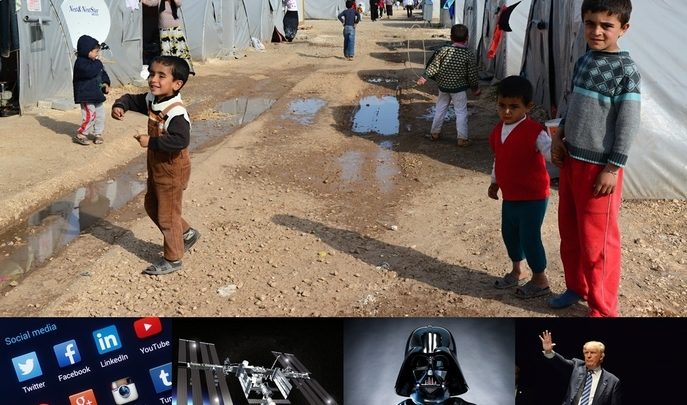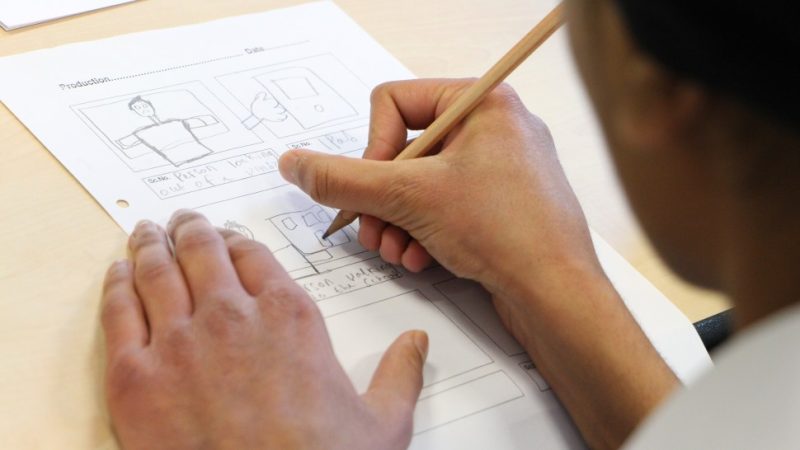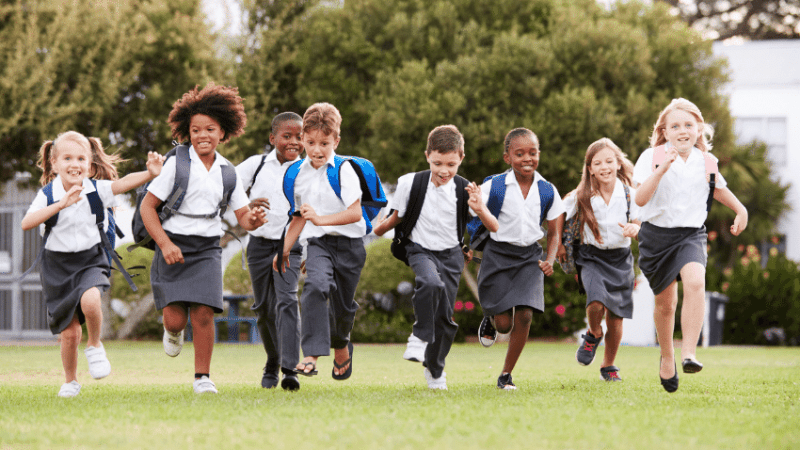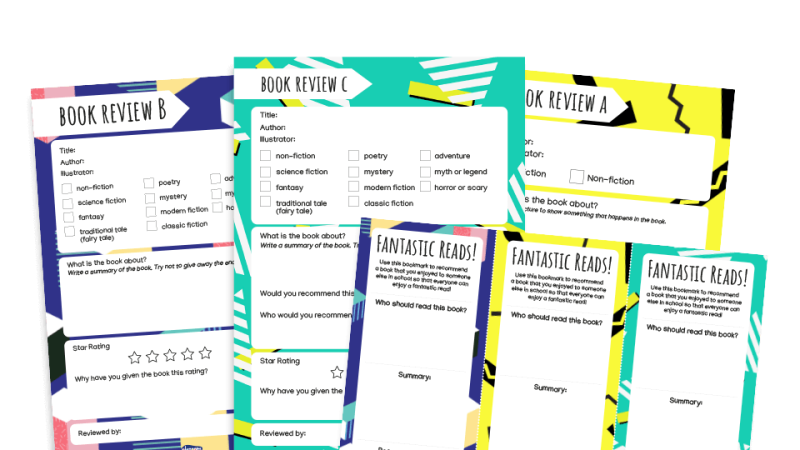‘Refugee’ Announced As Children’s Word Of The Year

Star Wars, space terms, technology and Trump also figure highly in entries to this year's 500 Words story writing competition

- by Teachwire

Oxford University Press has declared ‘refugee’ as its Children’s Word of the Year, based on an analysis of 123,436 short stories entered into the BBC’s 500 Words competition.
The competition calls on children in two age categories (5 to 9 and 10 to 13) to write an original short story of 500 words on any theme or subject and submit it online. Researchers from Oxford University analysed each entry to identify common features and trends among this year’s entries, the findings of which can be seen in a report prepared by Oxford Children’s Dictionaries [PDF].
‘Refugee’ was chosen as the Word of the Year on the basis of its use seeing a 368% increase among entries compared with 2015. Though ‘refugee’ saw far more use than use than the word ‘migrant’ – amounting to 339 hits versus 34 – both terms were used interchangeably.
The further report notes that the competition entries reflected empathetic and positive attitudes towards refugees; those entries addressing the topic largely did so through stories imagining the experiences of similarly aged children leaving their homes and undertaking arduous journeys.
As well as poignant descriptive language and imagery apparently informed by TV, print and news coverage of the ongoing Syrian conflict, people smuggling and refugee camps in Calais, the entries in question indicated a rise in associated vocabulary such as ‘dinghy’, ‘crisis’, ‘border’, ‘shelter’, ‘desperate’ and ‘flee’.
Browse resources for Refugee Week.
There was also a marked increase in words linked to space travel, with uses of ‘spacewalk’, ‘space station’ and ‘astronaut’ soaring compared with 2015, due to the past year’s Tim Peake effect. Indeed, the man himself made it into the top 10 real-life personalities appearing most frequently in the stories, alongside Neymar, Usain Bolt, William Shakespeare, Chris Evans, and somewhat incongruously, Adolf Hitler…
Sentiment analysis
A notable difference with this year’s competition was the researchers’ use of specialist language software to carry out a sentiment analysis to identify frequently appearing nouns and whether they were employed in a positive or negative context. Among the ‘happiest’ words were ‘adventure’, ‘heart’, ‘chocolate’, ‘school’ and ‘teacher’, while the ‘scariest’ words included ‘monster’, ‘dragon’, ‘fire’, ‘house’, and ‘door’.
The judging panel for this year’s competition includes HRH the Duchess of Cornwall as an honorary judge and the authors Malorie Blackman, Frank Cottrell-Boyce, Charlie Higson and Francesca Simon. The overall winners will be announced during a special edition of the BBC Radio 2 Chris Evans Breakfast Show broadcast live from Shakespeare’s Globe.
Airing tomorrow between 7.05am and 9.30am, the show will see celebrities including Julie Walters, Warwick Davis, Andy Serkis, Nick Jonas and Raleigh Ritchie read out the competition’s Bronze, Silver, and Gold winning entries and musical performances by One Republic, All Saints, and Foxes alongside the BBC Concert Orchestra and the London Community Gospel Choir.
Commenting on the standard of this year’s entries, Vineeta Gupta, Head of Children’s Dictionaries at OUP, remarked, “The children writing in this year’s competition have demonstrated a sophisticated use of language in their storytelling. They have used rich descriptions to convey emotion and have produced powerful stories that resonate with the reader. Our extensive research has provided a deeper understanding of children’s language skills across the UK and we continue to be inspired by their creativity.”
Broadcaster Chris Evans meanwhile noted, “This analysis has once again proved fascinating. OUP’s research has shown how aware and engaged children are with the world around them, not just at home, but globally and even inter-galactically! The imagination of kids never ceases to amaze me and I’m so proud that BBC Radio 2’s 500 WORDS has again fired up their creativity and shown how talented and inspiring the young people of the United Kingdom are.”
Trump vs Sykwalker
Some other interesting findings from this year’s 500 Words OUP research…
• The phrase ‘A long time ago, in a galaxy far, far away…‘ saw a 274% increase in use compared with 2015. The Force Awakens influence extended to plenty of references in stories to ‘Princess Leia’, ‘Kylo Ren’ and ‘Stormtroopers’ – but also children’s own fictional creations, such as a ‘botvader’ robot, and some even some bewildering but brilliant melding of the Star Wars universe with American politics, as seen in this example highlighted by the report’s authors:
‘He threw chairs, tables and smashed plates on the floor. Then his short burst of rage suddenly ended. He thought to himself. “What was that and how on earth did this happen.” The next morning his business partner Donald Trump came in and he fired Luke Skywalker for horrible work.’
• Following on from the bestowing of Children’s Word of the Year in 2015 on ‘hashtag’, there were more social media terms deployed in this year’s entries than ever. However, in addition to the expected ‘Facebook’, ‘YouTube’ and ‘Instagram’ and those evergreen acronyms ‘OMG’ and ‘LOL’ there also seemed to be significant increase in ‘harder’ technology terms such as ‘server’, ‘cache’, URL and ‘malware’.
• The top 10 list of most frequently appearing (and non-Star Wars-related) established characters included Santa Claus, Zeus, Harry Potter, James Bond, Romeo and the Tooth Fairy.
• According to the OUP’s researchers, the standard of spelling among entries has consistently been on the up over the five years since the competition was first launched. Top five words showing most improvement in correct spelling were ‘accidentally’, ‘frantically’, ‘definitely’, ‘doesn’t’, and ‘beginning’. The two most problematic words so far as spelling was concerned were ‘soldier’ and ‘minute’.
• Among the notable invented words to emerge this year were ‘weti’ (a water yeti) and ‘manffragettes’ (campaigners for men’s rights).
• The award for ‘longest word used’ meanwhile went to the child who used ‘pneumonoultramicroscopicsilicovolcanokoniosis’ – the name of a respiratory disease caused by exposure to crystalline silica.










